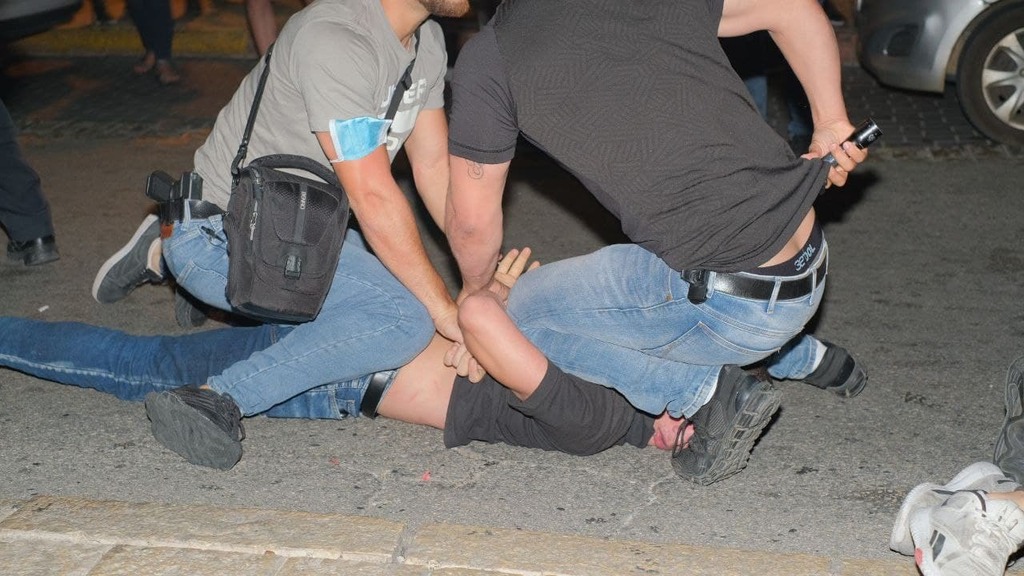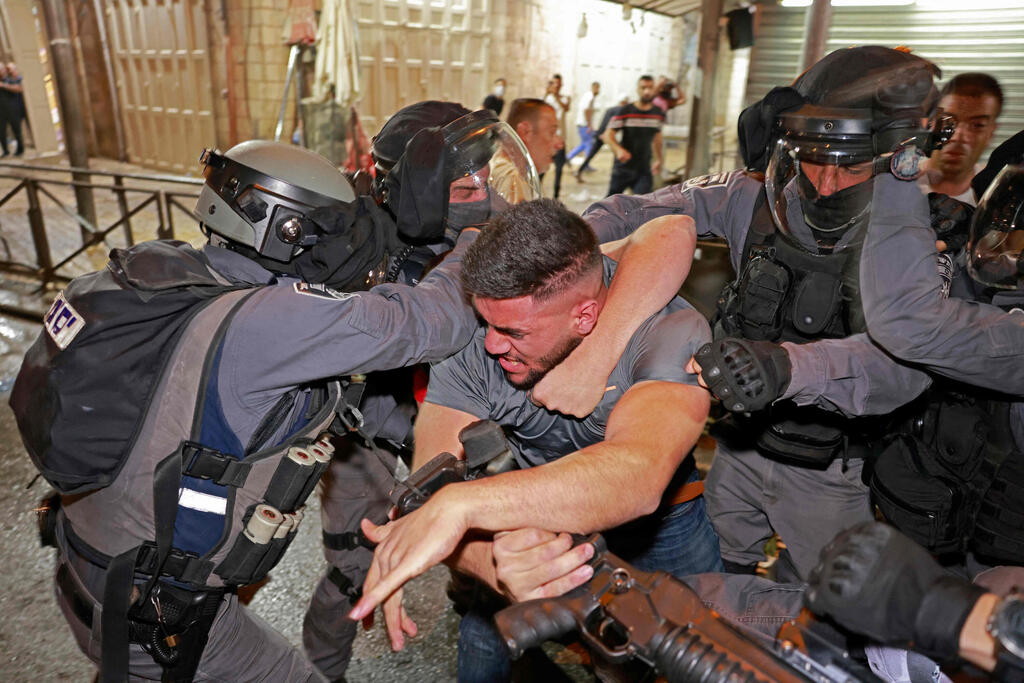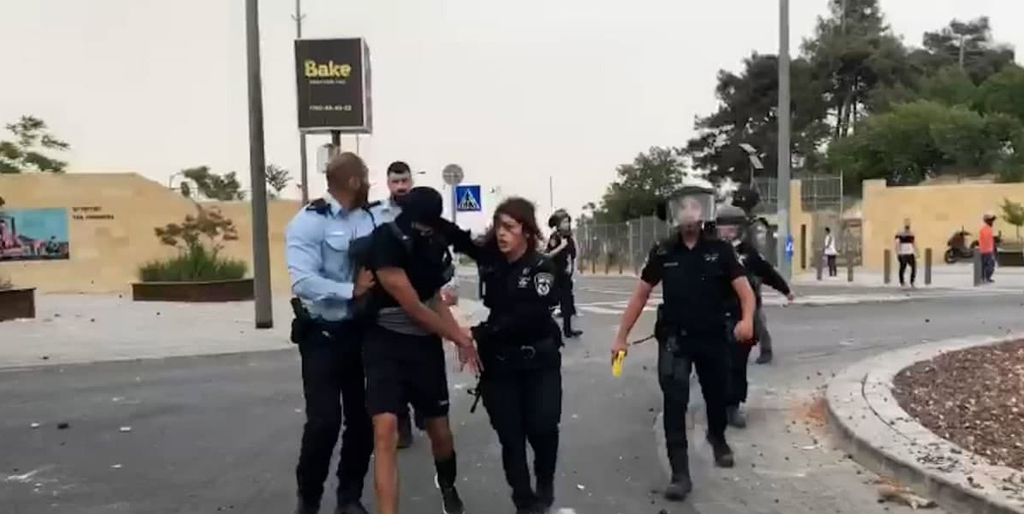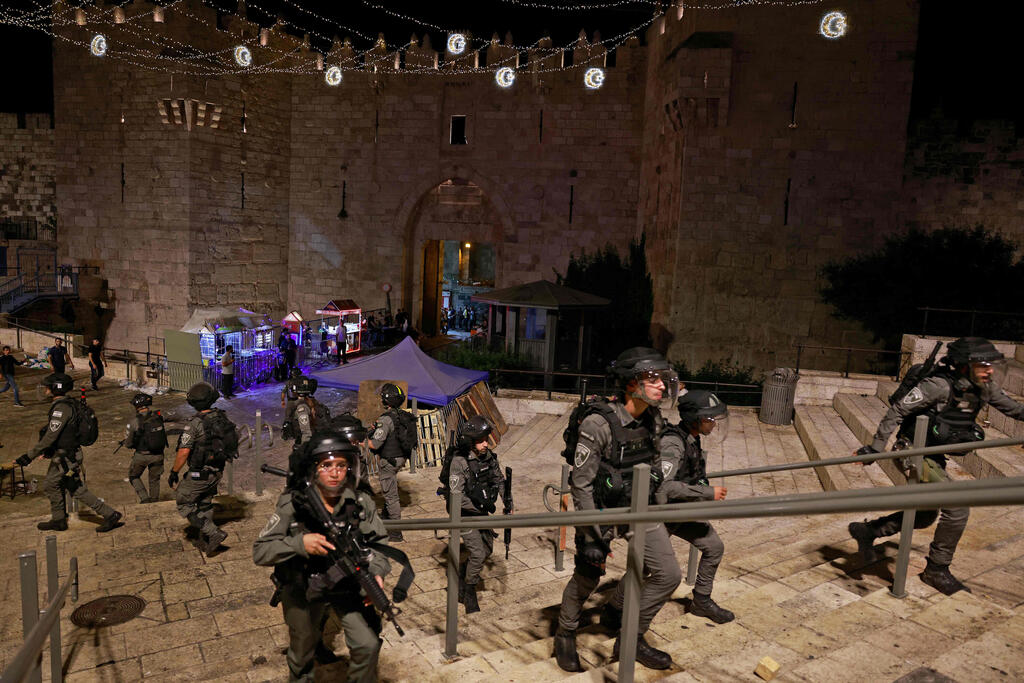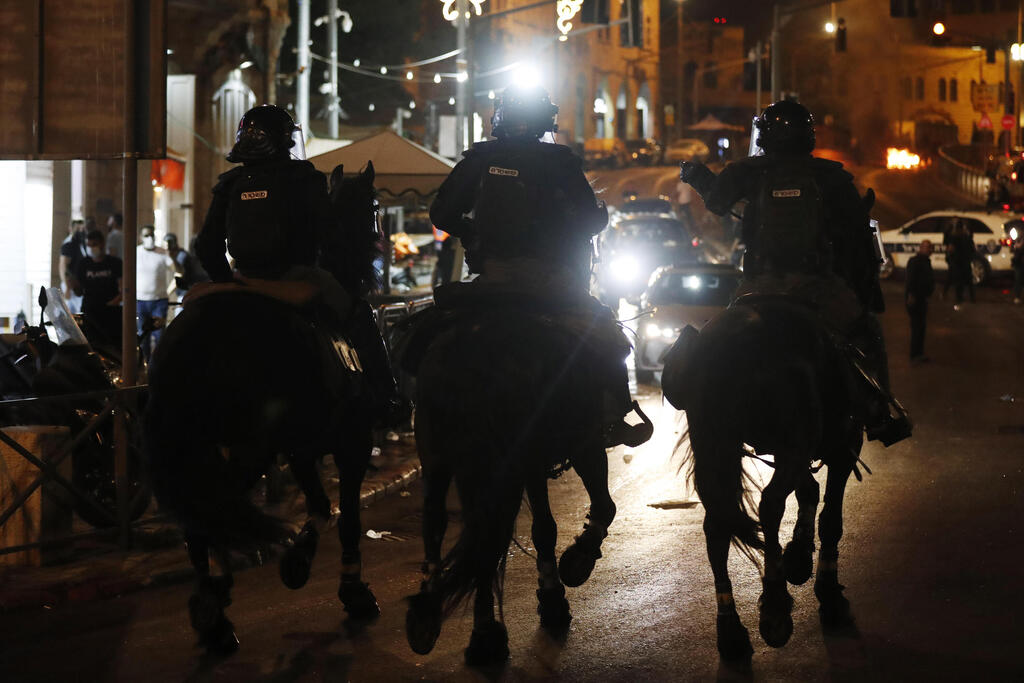Getting your Trinity Audio player ready...
Clashes between Arab protesters and police broke out in several locations across Israel on Sunday night, mainly in Jerusalem and Haifa, following days of confrontations between security forces and Palestinians in the capital.
Shortly after the end of a mass prayer session at the Western Wall plaza that opened the events of Jerusalem Day — marking the 54th anniversary of Israel capturing the city from Jordan in the 1967 Six-Day War — riots erupted in the East Jerusalem neighborhood of Sheikh Jarrah and at the city's Damascus Gate.
8 View gallery
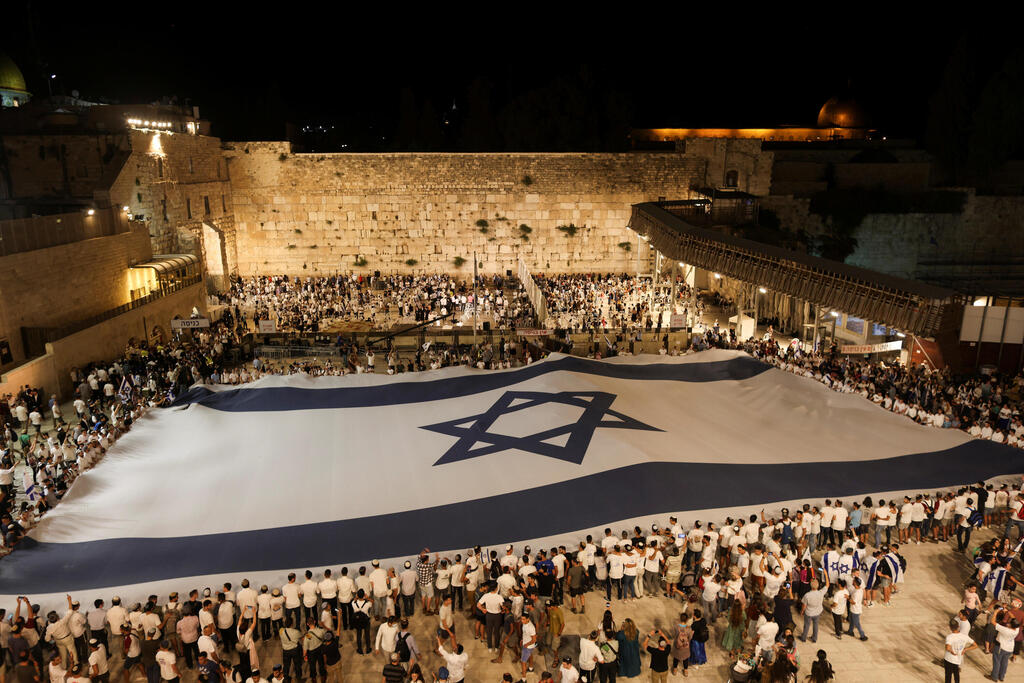

Jerusalem Day celebrations begin at the Western Wall on Sunday night
(Photo: Reuters)
Rioters torched vehicles and lobbed rocks and glass bottles at police officers who responded with stun grenades and water cannons.
The weeks of clashes initially began when police blocked the plaza outside the Damascus Gate, a popular gathering spot for Jerusalem's Palestinian residents during Ramadan. The barriers were later removed.
The tensions were compounded by growing anger over the potential eviction of several Palestinian families from their homes in the East Jerusalem neighborhood of Sheikh Jarrah and a spate of attacks on ultra-Orthodox Jews in the city by young Palestinians, which were then posted on the TikTok social media site.
Several clashes were also reported Sunday night in the northern city of Haifa, where 15 rioters were arrested after attacking officers and trying to break through a police barrier and obstruct traffic.
In the mainly Arab city of Nazareth, protesters gathered opposite the police station in a show of solidarity with the Sheikh Jarrah residents. The protesters burned tires and clashed with police, leading to several arrests.
Meanwhile, rocket sirens blared in the southern city of Ashkelon on Sunday night after projectiles were fired from the Hamas-controlled Gaza Strip into Israeli territory.
The Iron Dome missile defense system intercepted one of the two projectiles launched. There were no immediate reports of injuries or damage.
8 View gallery
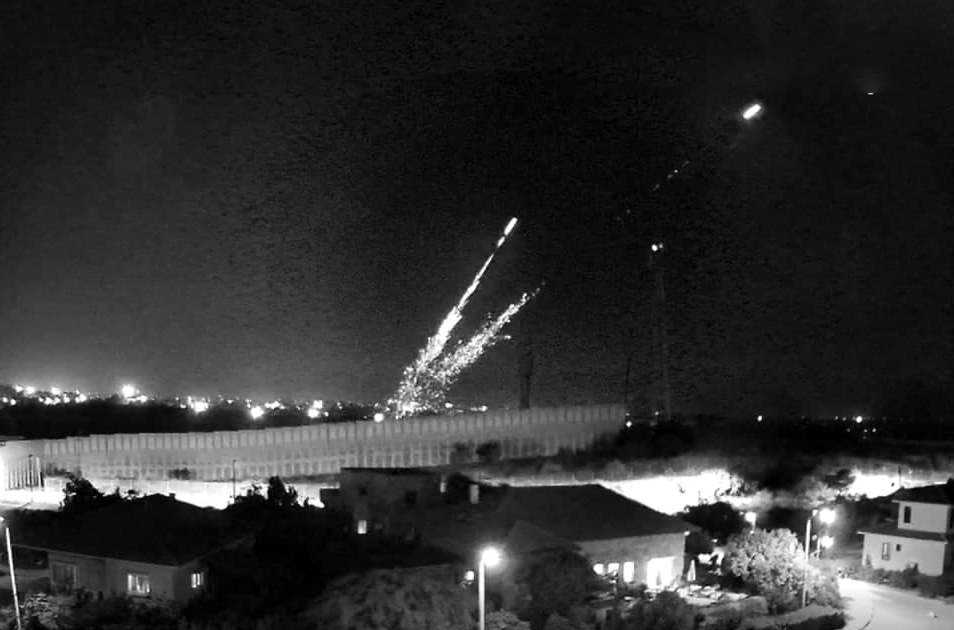

Rockets fired from Gaza at Ashkelon are intercepted by the Iron Dome system on Sunday night
(Photo: Dedi Fuld)
The rocket attack came shortly after the IDF announced it will close the Palestinian enclave's fishing zone "until further notice" due to renewed rocket fire and arson balloons launched from the Gaza Strip.
In response, Gaza militants threatened to escalate their attacks.
Coordinator of Government Activities in the Territories (COGAT) — the IDF's liaison unit to the Palestinian territories — said that the decision to close the fishing zone was made due to "the rocket fire and continued launching of arson balloons from the Gaza Strip into Israeli territory, constituting a violation of Israeli sovereignty."
"The Hamas terror organization bears the full responsibility for all daily occurrences within the Gaza Strip towards Israel, and will be held accountable for any violent actions against Israel's citizens," it said.
8 View gallery
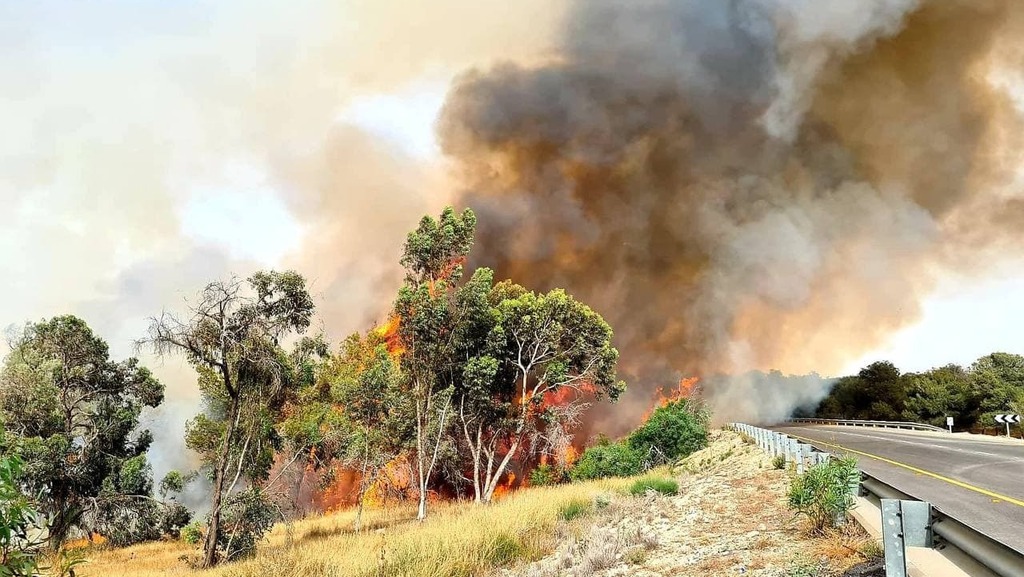

Fire breaks out in southern Israel after an arson attack from Gaza on Sunday
(Photo: National Fire and Rescue Authority)
More than 20 fires broke out near the Gaza Strip border on Sunday as Palestinian militants dispatched dozens of balloon-borne incendiary devices onto Israeli soil since the morning hours.
A Hamas senior official warned Israel on Sunday it was "playing with fire" and that "the entire Palestinian people will take arms in the next battle for Jerusalem and its holy sites."
The official called on Palestinian youths to do everything in their power to "harm the enemy" everywhere.
Israel's Deputy Ambassador to Jordan Sami Abu Janeb was summoned to the Jordanian Foreign Ministry due to the events in Jerusalem.
Abu Janeb stressed that Israel maintains freedom of worship and religion for all faiths and any harm to Jewish worshipers at the Western Wall must be avoided.
Earlier Sunday evening, clashes erupted between Palestinians and police outside the entrance to the Hebrew University of Jerusalem campus on Mount Scopus.
The Palestinians, many of them from the nearby East Jerusalem neighborhood of Isawiya, hurled rocks at the cops, who responded with stun grenades. Police said three officers were injured.
"They would not let us get out of the university," said Prof. Avi Kluger, a lecturer at Hebrew University.
"I was in my car and they rerouted us to other exits. There were also people who could not leave on foot. They told us that the road leading to Hadassah Hospital was closed and so was the way to Bezalel Academy of Art and Design, where they were lobbing stones."
Security officials on Sunday urged the government to rethink the annual Jerusalem Day parade following the days of unrest in the capital.
The officials called for the government to reconsider the route, the number of marchers and even the event itself.
The march would have coincided with a Supreme Court ruling Monday on the fate of dozens of Palestinians who are fighting attempts by settlers to evict them from their homes in Sheikh Jarrah.
The court said Sunday it would delay the following day's session after a request from Attorney General Avichai Mandelblit, who apparently sought to lower tensions in the capital.
Before dawn Sunday, thousands of Muslim worshippers skirmished anew with police at the gates of the al-Aqsa Mosque compound in the Old City. Videos on social media showed Palestinians hurling water bottles and rocks at officers, who fired stun grenades.
The site, known to Jews as the Temple Mount and to Muslims as the Noble Sanctuary, is considered the holiest site in Judaism and the third holiest in Islam. It has been a tinderbox for serious violence in the past.
Dozens of Palestinians were wounded in violent confrontations with police in Jerusalem overnight from Saturday to Sunday, when Muslims marked Laylat al-Qadr, the holiest period of the Muslim fasting month of Ramadan.


